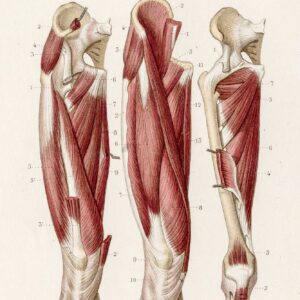A recent study from the University of Michigan has found that traumatic experiences during childhood can have lasting effects on muscle function later in life. The research, published in Science Advances, examined the skeletal muscle function of older adults and compared it to surveys of adverse events they had experienced in childhood.
Kate Duchowny, the lead researcher from the University of Michigan Institute for Social Research, found that about 45% of the participants reported experiencing one or more adverse childhood events. Both men and women who reported these events had poorer muscle metabolism later in life.
Measuring Muscle Function and Childhood Adversity
The study used muscle tissue samples from 879 participants over age 70 who were part of the Study of Muscle, Mobility and Aging (SOMMA). The researchers examined the muscle biopsies to determine two key features of muscular function: the production of adenosine triphosphate (ATP) and oxidative phosphorylation, a process that helps produce ATP.
Participants were also given questionnaires that included questions about their childhood experiences, such as whether a close family member used drugs or alcohol in a way that caused them to worry, if they were physically abused, or if they felt loved and important in their family.
Implications for Aging and Health Outcomes
The study’s findings suggest that early childhood experiences can influence skeletal muscle mitochondria, which is important because mitochondrial function is related to a range of aging-related outcomes. “If you have compromised mitochondrial function, that doesn’t bode well for a range of health outcomes, including everything from chronic conditions to physical function and disability limitations,” Duchowny said.
The researchers controlled for other factors that could potentially impact muscle function, such as age, gender, education, body mass index, depression, smoking status, and physical activity. Despite these factors, the effects of childhood adverse events remained significant.
Study co-author Anthony Molina, professor of medicine at the University of California San Diego, noted that this is the first time researchers have looked backwards at what kinds of things could lead to differences in mitochondrial function that can drive differences in healthy aging outcomes among older adults.
Study: Childhood adverse life events and skeletal muscle mitochondrial function


